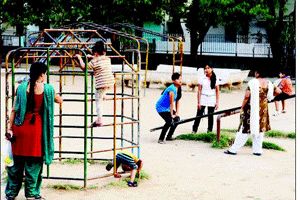For details see below:
[2011] 128 ITD 177 (Bang.)
IN THE ITAT BANGALORE BENCH ‘A’
i25 Rural Mobile Commerce Services
v.
Director of Income-tax (Exemptions)*
DR. O.K. NARAYANAN, VICE-PRESIDENT AND GEORGE GEORGE K., JUDICIAL MEMBER
IT APPEAL NO. 1120 (BANG.) OF 2009
[ASSESSMENT YEAR N.A.]
MAY 10, 2010
Section 2(15), read with section 12A, of the Income-tax Act, 1961 – Charitable/religious purpose – Assessee-trust was registered under section 25 of Companies Act, 1956 – Its object was to promote commerce, art and science for serving un-served people through facility management service – It filed an application for registration under section 12A – DIT(E) after examining activities of assessee held that it worked as an agent for banks and received remuneration for services rendered and said activity was hit by proviso to section 2(15) and, thus denied registration to assessee – Whether nature of activity of assessee nowhere suggested that it worked for giving relief to poor, instead it was carrying on business in nature of trade, commerce and, therefore, DIT(E) rightly denied registration to it – Held, yes
FACTS
The assessee-trust was registered under section 25 of the Companies Act, 1956. Its object was to promote commerce, art and science for serving the un-served people through facility management service. It filed an application for registration under section 12A. The DIT(E) after examining the activities of the assessee held that the trust worked as an agent for banks and received remuneration for the services rendered and the said activity was hit by the proviso to section 2(15), hence, the benefit of registration under section 12A was not available to the assessee.
On second appeal :
HELD
The newly inserted proviso to section 2(15 ) will not apply in respect of the first three limbs of section 2(15), i.e., relief of the poor, education or medical relief. Consequently, where the purpose of a trust or institution is relief of the poor, education or medical relief, it will constitute ‘charitable purpose’ even if it incidentally involves the carrying on of commercial activities. The proviso to section 2(15) will apply only to entities whose purpose is advancement of any other object of general public utility,i.e., the fourth limb of the definition of ‘charitable purpose’ contained in section 2(15 ). Hence, such entities will not be eligible for exemption under section 11 or under section 10(23C) if they carry on commercial activity. [Para 6]
The assessee worked as business correspondent to various banks. It had entered into a Memorandum of Understanding (MoU) between various banks through its agents/representatives/associates at different villages, as per the requirement of bank. On verifying the MoU entered into between the assessee with the Corporation Bank and the Vijaya Bank, it was noticed that the Corporation Bank had offered a consolidated fees of Rs. 1,500 per month for the business correspondents for each location. Whereas the Vijaya Bank had offered a consolidated compensation of Rs. 2,600 per month per one sub-agent. The assessee merely asserted that the activity of the trust fell within the realm of the first limb of definition of charitable purpose under section 2(15). There had been no material on record to suggest that the assessee’s activity catered to the poor and could be termed as relief to the poor. [Para 7]
As rightly pointed out by the DIT(E), the assessee worked as an agent for the banks and received remuneration for the services rendered from the banks concerned. The said activity of the assessee, fell within the realm of advancement of objects of general public utility and was hit by the proviso to section 2(15 ). Looking into the nature, scope, extent and frequency of the activity it could be said that the assessee was carrying on the business in the nature of trade, commerce. Therefore, in the light of the aforesaid reasoning, the order of the DIT(E) was correct and in accordance with the law and no interference was to be called for. [Para 8]
In the result, the appeal filed by the assessee was to be dismissed.
________________________________
Socio Research & Reform Foundation
(A Non Government Organisation)
512 A, Deepshikha, 8 Rajendra Place, New Delhi – 110008
Tele/Fax: +91-11-25821088, 25817157, 25722044
e-mail: socio-research@sma.net.in

